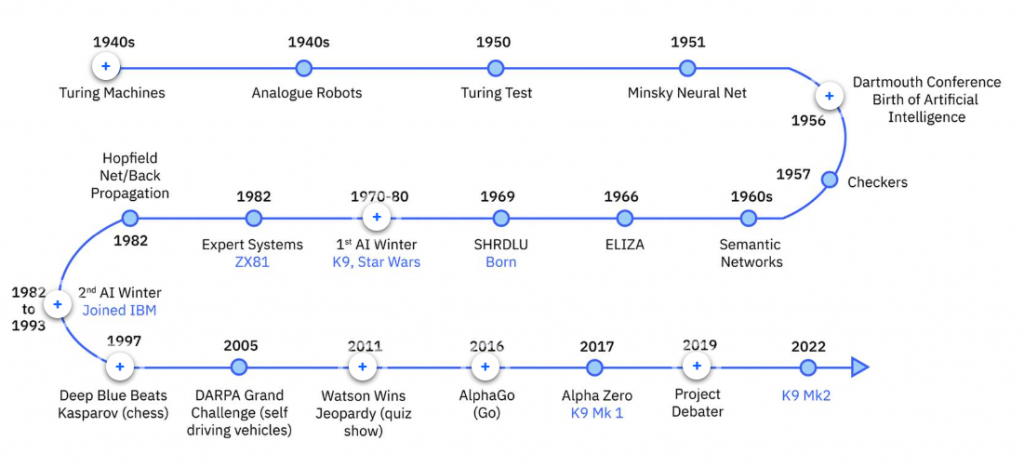The development of Artificial Intelligence (AI) spans several decades and is marked by key milestones:
- Early Concepts and Inspiration (Before 1950s):
- Philosophers and scientists, including Aristotle and Alan Turing, laid the groundwork with ideas about logic and reasoning, and the concept of a universal machine that could perform any computational task.
- The Birth of AI (1950s):
- The term “Artificial Intelligence” was first coined by John McCarthy in 1956 at the Dartmouth Conference, which is generally considered the birth of AI as a field.
- Alan Turing’s paper “Computing Machinery and Intelligence” (1950) and his Turing Test were also foundational.
- Early AI research in the 1950s and 60s focused on problems like solving algebraic word problems, proving geometric theorems, and learning languages.
- Early Success and AI Winter (1960s-1970s):
- The 1960s saw early success in AI, including the development of the first AI program, ELIZA, and the first general problem solver, SHRDLU.
- However, the limitations of these early AI systems led to the first “AI Winter” in the late 1970s, a period of reduced funding and interest in AI research.
- Rise of Expert Systems (1980s):
- The development of expert systems, which simulated the decision-making ability of a human expert, led to a resurgence of interest in AI.
- However, by the late 1980s, the limitations of expert systems became apparent, leading to a second AI Winter.
- AI Integration and the Internet (1990s-2000s):
- The rise of the internet and the increase in computational power saw AI research integrating into various technologies.
- This period saw significant advancements in areas like data mining, industrial robotics, and logistics.
- Modern AI and Deep Learning (2010s-Present):
- The development of deep learning and neural networks, coupled with big data and powerful computational resources, has led to significant breakthroughs.
- AI applications have become more widespread and sophisticated, impacting sectors like healthcare, finance, transportation, and personal technology.
- Ethics and Future Developments (Present-Future):
- As AI becomes more integrated into society, ethical considerations like privacy, bias, and job displacement have gained prominence.
- The field continues to evolve, with research focusing on achieving General AI, explainable AI, and ensuring AI systems are ethical and fair.
The history of AI is characterized by cycles of significant advancement followed by periods of disillusionment, leading to a layered and complex development landscape. Today, AI stands as one of the most dynamic and influential fields in technology.

